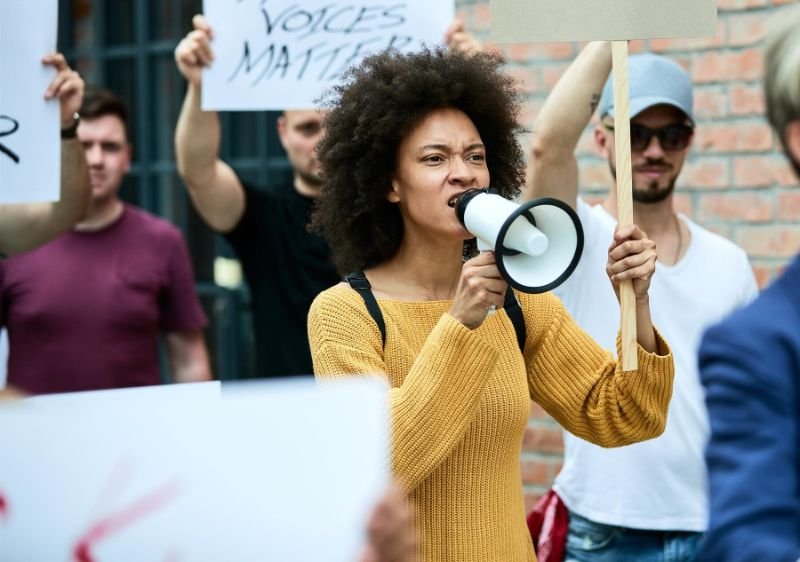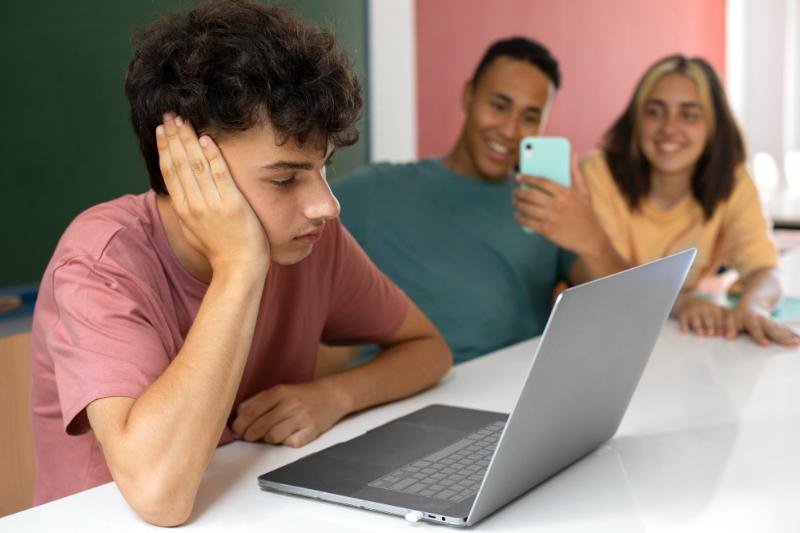Imagine being all revved up for the thrilling college ride, only to encounter a sneaky challenge that puts a damper on the whole adventure – microaggressions.
These tiny acts of discrimination can really mess with your college groove, leaving you feeling like you don’t belong.
But fear not!
In this guide, we’re interpreting the world of microaggressions in college, arming you with the tips and tricks you need to navigate these stormy seas like a pro.

Have you ever wondered how to address microaggressions in college effectively?
Or what impact they have on the overall campus environment?
Microaggressions: The Sneaky Trouble-makers
So, what exactly are these pesky microaggressions?
Well, they’re those small, often unintentional acts or remarks that target individuals based on their race, gender, or other personal traits.
Think comments like, “You’re surprisingly well-spoken for someone like you,” or assumptions about your identity based on how you look.
They can make you feel totally belittled and left out in the cold.

Why Deal with Microaggressions?
Now, you might wonder, why bother dealing with these minuscule monsters?
Well, for one, they can seriously mess with your mental health, leaving you anxious and low on self-esteem.
Plus, they create a campus vibe that’s far from inclusive, making it tougher for some students to shine.
It’s not just about feeling good; it’s about making sure every student has a fair shot at success.
Tips to Outsmart Microaggressions
Feeling lost in the microaggression maze? Fret not! We’ve got your back with some killer strategies:
1. Get Smart: First things first, educate yourself and others about what microaggressions really are.
Knowing is half the battle won.
2. Talk it Out: Encourage open chats about microaggressions.
Let your voice be heard, and lend an ear to others, too.
3. Team Up: Find those campus crews that are all about diversity and inclusivity.
Strength in numbers, right?

4. Therapy Time: When things get heavy, don’t shy away from seeking some professional support.
It’s there for a reason, bud!
5. Be the Change: Step up and be that advocate for change.
Your campus needs someone like you to make it a better place for all.
Real-life Rockstars
Meet Alyssa, who shared her own run-in with microaggressions: “I thought college would be all about acceptance and growth.
But facing those little digs from my peers made me doubt myself and my place in this community.”
We’re all about turning stories like Alyssa’s into victories!
Check out how one college slashed microaggressions by 30% in just one year.
How?
With workshops, awareness drives, beefed-up counseling services, and a streamlined reporting system.
Now that’s what we call progress!
Navigating Microaggressions in College
Putting Your Mental Health First
Microaggressions hitting you hard?
You’re not alone!
They can really mess with your mental wellbeing, making you feel like you’re in a one-person battle.
But here’s the lowdown: your college’s got your back with some stellar counseling services.
Don’t hesitate to reach out and get that weight off your shoulders.
Finding Your Squad
Feeling like you’re the only one fighting this battle? It’s time to link up with your own dream team.
Seek out those student groups that celebrate diversity and inclusion.
They’re your safe space, offering support, advice, and a sense of belonging – just what the doctor ordered!

Spreading the Word
Ignorance is the fuel of microaggressions.
Let’s snuff out that fire by promoting open conversations on your campus.
Encourage understanding and empathy.
Because when we all get where the other is coming from, those tiny digs will soon become a thing of the past.
Speaking Up
Scared of speaking out against microaggressions? We get it; it can be scary.
But here’s the secret sauce – stand your ground!
Polite but firm responses can go a long way.
If you need some backup, your buds, profs, or counselors are just a chat away.
Faculty and Friends in the Fight
It’s not just you against the microaggression machine; your faculty’s got your back too!
By embracing diverse teaching materials and creating safe spaces for open discussions, they’re paving the way for a more inclusive campus vibe.
Law and Order (Almost)
Thinking of taking legal action against microaggressions?
Hold your horses!
While some forms of these sly digs might cross legal lines, fighting that battle can be a whole new rollercoaster ride.
It’s often best to tackle these issues on a campus level, creating a more welcoming space for all.

Real-life Impact: A Success Story
Let’s look at a success story of a college that implemented an effective program to combat microaggressions.
The program consisted of several components:
- Workshops and Training: The college organized workshops on microaggressions and implicit bias for both students and faculty. These sessions helped participants understand the nature of microaggressions and how they can be unintentional.
- Awareness Campaigns: The college launched awareness campaigns to promote inclusivity and respect. Posters, social media messages, and campus events raised awareness about microaggressions.
- Counseling Services Expansion: The counseling center at the college expanded its services to provide specific support for students facing microaggressions. This included individual counseling sessions and support groups.
- Reporting Mechanism: The college established a clear mechanism for reporting microaggressions. This allowed students to report incidents anonymously if they preferred.
Over the course of a year, the college saw significant improvements:
– Reports of microaggressions decreased by 30%.
– Student satisfaction with the campus climate improved significantly.
– More students reported feeling supported and confident in addressing microaggressions.
This success story emphasizes that colleges can create a more inclusive and respectful environment for all students with the right strategies and commitment.

FAQ: Your Microaggression Questions Answered
1. What should I do if I experience a microaggression in college?
Address it politely but assertively, and consider discussing it with a trusted friend, professor, or counselor.
2. How can colleges create a more inclusive environment?
Colleges can promote diversity and inclusion through policies, training, and support networks for students.
3. Can microaggressions affect academic performance?
Yes, they can. Constant exposure to microaggressions can lead to stress and reduced academic performance.
4. Are microaggressions always intentional?
No, they can be unintentional, stemming from implicit biases.
Education and awareness can help reduce them.
5. What resources are available for students facing microaggressions?
Most colleges offer counseling services and support groups.
Additionally, student organizations often focus on diversity and inclusion.
6. How can I become an advocate for change on my campus?
Start by joining or creating a student organization dedicated to promoting diversity and inclusivity.
Advocate for policies and programs that address microaggressions.
7. Are there any legal protections against microaggressions in college?
Some forms of microaggressions may violate anti-discrimination laws, but legal recourse can be challenging.
It’s best to address these issues at the institutional level.
8. What is the role of faculty and administration in combating microaggressions on campus?
Faculty and administration play a significant role in creating policies, providing training, and fostering an inclusive campus culture.
Final Note
To wrap it up, understanding and navigating microaggressions in college isn’t just about you – it’s about making college life better for everyone.
So as to create a more inclusive, welcoming, and supportive educational environment.
By educating yourself, seeking support, and becoming an advocate for change, you can contribute to a college experience where every student feels valued and respected.
So keep your head high, your spirit strong, and remember, you’re not alone in this fight!

Education Expert & Blogger
As an education enthusiast passionate about knowledge sharing, I’m dedicated to empowering students and learners in their academic pursuits.
With a background in the field of Foods, Nutrition, & Dietetics (FND) Bachelor’s Degree, I specialize in delivering well-researched content on a wide range of educational topics.
I aim to provide readers with valuable insights, credible advice, and practical strategies to excel in their studies while ensuring their well-being.
With a commitment to accuracy and expertise, I bring years of experience to each blog post, aiming to impact students’ educational journey positively.
Your success in both learning and life is my utmost priority, and I’m thrilled to be your trusted guide in this exciting adventure.





Pingback: Unlock Success: College Entrepreneurship Guide for Students